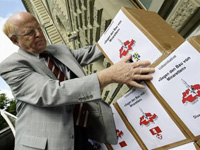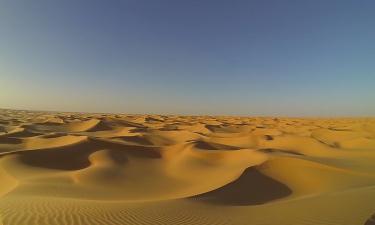Swiss Referendum Results Seem to be Blunder against Muslim World
Muslim leaders from around the world condemned a vote in Switzerland to ban the construction of minarets in the Alpine country, raising fresh fears of a backlash against Swiss interests around the world.

Voters in Switzerland approved a referendum Sunday to ban the building of new minarets on mosques. Nearly 58% of voters, and all but four of the country's 26 cantons, supported the initiative, with support for the ban reaching 70% in some regions.
The outcome was a surprise in a country that has had far fewer problems with the integration of its Muslim minority than its European neighbors. As a result, the government braced for a possible backlash against Swiss businesses, even as companies themselves took a low-key response to the outcome, hoping not to stir tension.
Political and religious leaders of Muslim countries were quick to condemn the vote.
Egypt's top cleric, Ali Gomaa, called the referendum an "insult" to Muslims, while the Organisation of the Islamic Conference, the largest international Muslim group with 57 member states, called the vote a "recent example of growing anti-Islamic incitements in Europe by extremist, anti-immigrant, xenophobic, racist, scare-mongering ultraright politicians who reign over common sense, wisdom and universal values."
The Swiss foreign ministry began Monday to try to ease tensions with the Muslim world. Top diplomats in Bern have contacted leaders of Islamic organizations, including the Islamic conference. Swiss diplomats in Muslim countries also have reached out to local foreign ministries to assure governments that the referendum doesn't restrict the right of Muslims in Switzerland to practice their religion.
On Monday, Swiss companies kept a low profile in the wake of the vote, declining to discuss any possible retaliation while urging the government to work to calm tensions.
A number of Swiss companies, such as engineering group ABB Ltd. and food maker Nestlé SA, have large interests in Muslim countries. Nestlé has about 50 factories in the Muslim world and is the world's largest producer of halal food, or food permissible under Islamic law. Nestlé has recently begun expanding its halal business in Europe, to cater to the Continent's growing Muslim population. "Nestlé cannot be associated with any form of discrimination," the company said.
Nonetheless, the government suggested Swiss business could suffer somewhat as a result of the vote, according to Wall Street Journal's report.
Subscribe to Pravda.Ru Telegram channel, Facebook, RSS!





